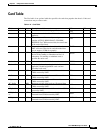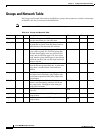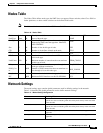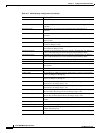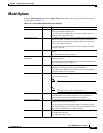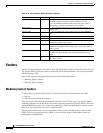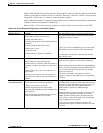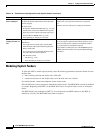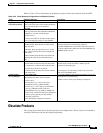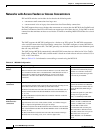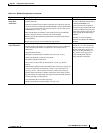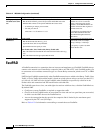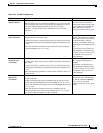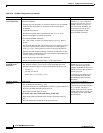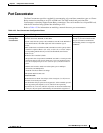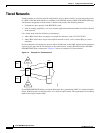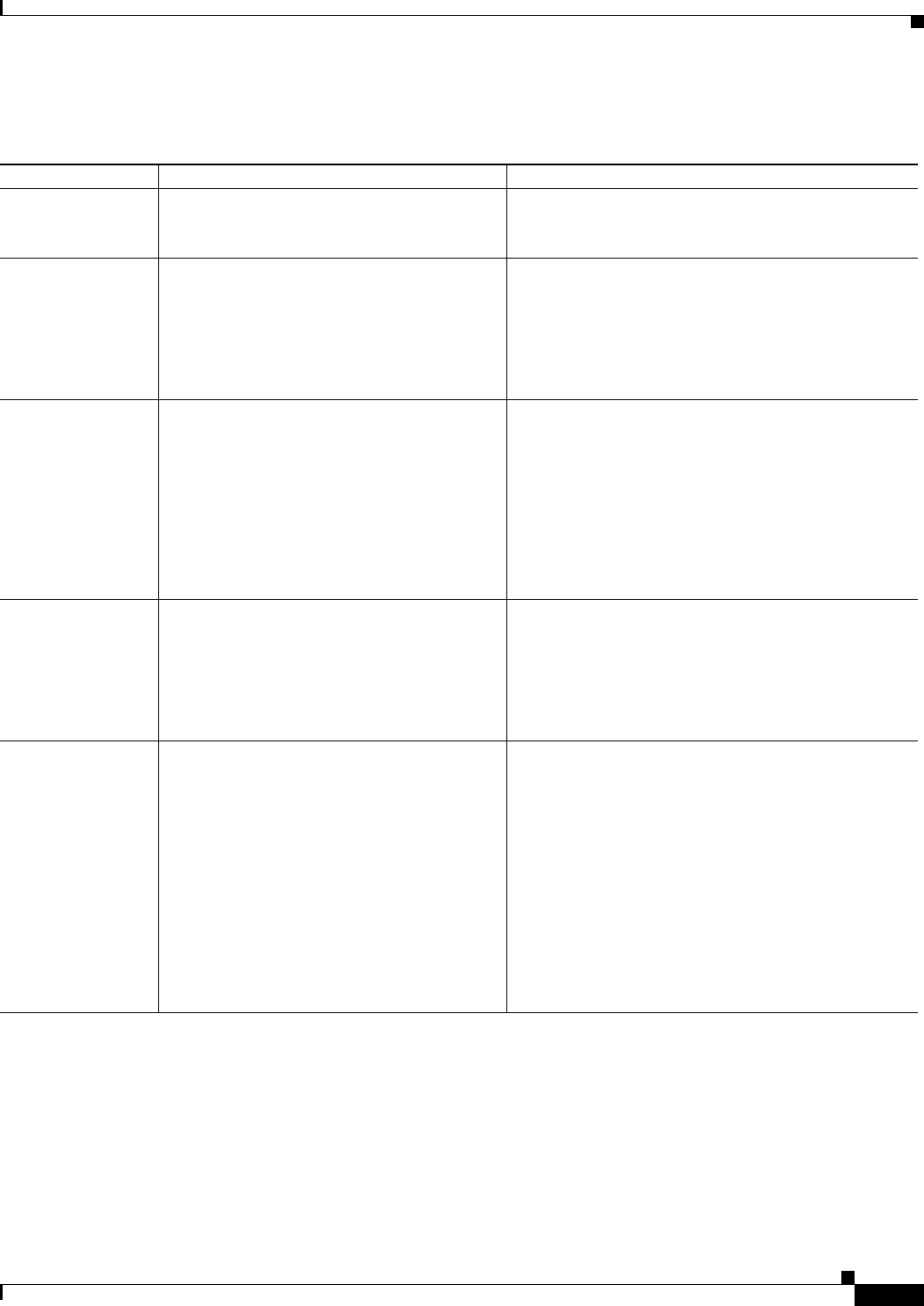
4-35
Cisco WAN Modeling Tools Guide
OL-10426-01, Rev. A0
Chapter 4 Configuration Tables and Fields
Obsolete Products
Refer to Table 4-20 for information on modeling an explicit feeder tiered network with the NMT.
Obsolete Products
The sections that follow discuss obsolete products and configurations. These sections are included to
describe CWM extraction data and migration planning.
Table 4-20 Tiered Network Configurations with Explicit Feeders
Topic Required Settings Comments
Explicit Feeders:
General Instructions
Model Settings table
Make sure that the value of Switch Software Release
is set to the release that is to be modeled.
Site Table
Node Type field: Enter IGX, IPX, BPX, MGX8220,
MGX8850, or any other valid Node Type.
Fdr field: Enter Y.
PC field: Leave blank, for all nodes except Popeye 2;
if you are configuring a Popeye 2, enter PXM45.
Link Table
Site1/Site2 fields: Enter the hub site name and the
feeder site name.
Trunk fields: Enter the appropriate T1, E1, T3, E3,
OC3, or OC12 interface that connects the hub and
feeder nodes.
Trunk Card fields: Enter the front cards at the hub
and the feeder nodes for the trunk that connects
them.
You must enter the trunk between the hub and the feeder
manually. NMT will not automatically generate it.
Only IGX and BPX nodes may be hubs. IGX nodes may have
only IGX or IPX feeders. BPX nodes can have MGX8220 and
MGX8850 feeders as well.
Voice, Data, or Bursty Traffic tables
Site field: Enter the explicit feeder site name. Must
be a site that has Y in the Fdr field in the Site table.
Type field: any from the list of choices.
BC (Back Card) fields: Enter the customer interface
on the feeder node.
Only IGX and IPX feeders support Voice and Data Traffic.
You must enter a feeder site name for NMT to put the
connection on the feeder node.
Even though you are referencing a feeder node, use the BC
fields, and not the FdrBC fields.
Explicit Feeders:
Port to Multiport
Bursty Traffic table
Hub I/D fields: ID values must be assigned.
ID values can be
• Slot.Line.Port (e.g., 5.2.6) for multi-port
channelized card (e.g., FRSM, UFMC).
• Slot.Port (e.g., 5.3) for single-port channelized
cards (e.g., FRM-E1) and for multi-port
unchannelized card (e.g., FRM-4V, AUSM);this
format can be used also for multi-port channelized
cards to specify physical port (line) without
specifying logical port.
• Zero, indicating no unique port constraint.
By assigning Hub IDs to the connection endpoints, you can put
the connection on a particular port.
Hub IDs can also control port-to-multiport connections.



